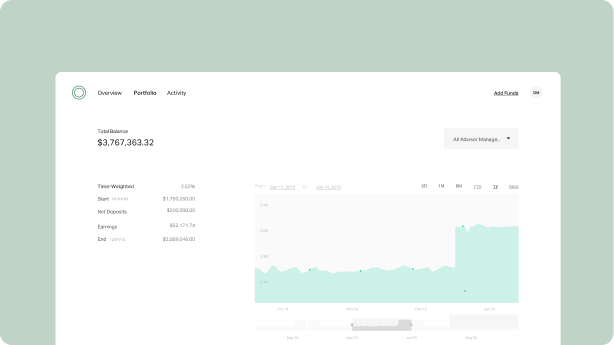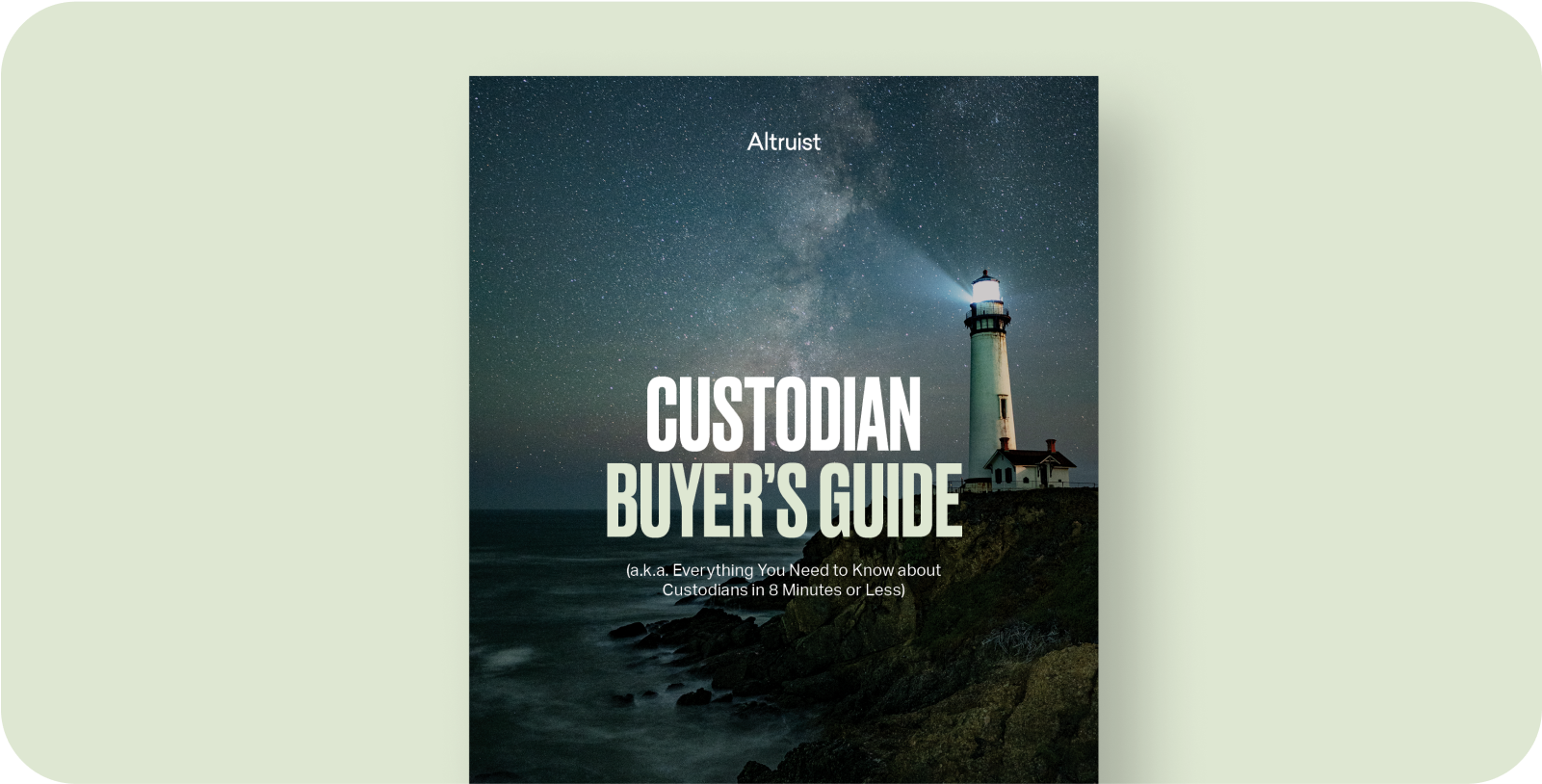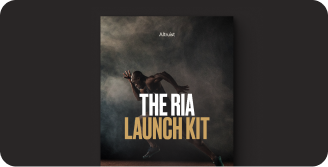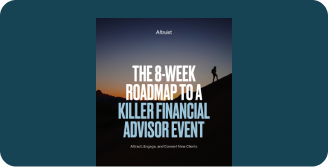As a financial advisor, meeting a prospective new client is always exciting, and you want to ensure you get the most out of your initial introduction. That's where a financial advisor's first meeting script is helpful.
With a guided script in hand, you'll be able to make sure that you cover all the essentials while building a solid foundation for a successful working relationship.
Why is a script necessary for the first meeting?
The first thing to mention is that your script is not meant to be read verbatim. That’s a surefire way to a stiff and uncomfortable conversation. A good script is just a guide to help ensure you cover the most important bases, prevent the conversation from derailing, and give the client a feel of what it will be like to work with you if they choose to move forward.
Components of an advisor meeting script
Each advisor’s script will be unique to their firm. Below are some categories and questions you can draw inspiration from to create your script.
Introduction
At the start of the conversation, aim to establish a human connection while setting expectations for the call. To help you do that, provide an “up-front contract” that clarifies the purpose of the call, the agenda, and the desired outcome of the meeting.
An up-front contract is a Sandler concept to help you make your prospective calls more efficient.
A loose example would be:
"Hey, thanks for taking the time to chat with me today. I'm looking forward to getting to know you and learning more about your unique situation.
Right up front, I'll just address the fact that this can be a confusing and overwhelming process, but I'm here to help guide you through it. Feel free to ask me any questions throughout our call, and I'll have some questions for you too.
The goal is to assess whether we're a good fit for each other. I'll add that there's no pressure to decide anything immediately. We can set up a follow-up call after you've had a few days to think things over. Does that sound good to you?”
Questions to help you discover what the immediate needs are
You want to determine what life events or financial challenges inspired them to reach out. Getting this information early on is important as it will help you decide which direction to take the conversation in.
- What prompted you to schedule this meeting?
- What do you wish to accomplish by hiring a financial advisor?
- Have you worked with a financial advisor before? If so, how was it?
Learn about how they think about money
Everyone thinks about money differently. To help your client get a better handle on their financial situation, it’s important to know how they value their money and how they deal with it. This will help you pinpoint what services may be best suited for them and where you can help improve their relationship with money.
- What moments have shaped your relationship with money?
- How are you currently managing your finances: what’s working, and where do you want to improve?
- What does your ideal financial situation look like?
Uncover financial concerns that might not be front of mind for the client
To help your client think a little more micro about their financial situation, the next set of questions will do just that. During these questions, carve out some time for the client to take a moment to think through and visualize their financial situation and goals.
- What are your short-term financial goals? Long-term financial goals?
- Are you supporting or planning to help others in your family?
- Are there any major life events coming up?
Explain how you work with clients in a similar situation
As the conversation continues, you will get a sense if this is a client you want to move forward with. If so, and only if it feels right, you may want to share how you’ve helped a similar client. However, don’t use this as a time to self-promote. This is only to help the client visualize what it will be like to work with you.
Additionally, it’s also important to set expectations around the working relationship. How does the client expect you to communicate with them throughout your relationship?
- How do you expect us to work and communicate with each other?
- How often do you expect us to meet?
- [Question for advisor] When should the client proactively reach out?
Wrapping up the meeting and the next steps
This will depend on how the meeting goes, but if this is a client you want to move forward with, you can use this time to set up another appointment or discuss due dates for specific tasks. However, don’t pressure your prospective client to decide in this first meeting–be sure to read the room.
Emlen Miles-Mattingly of GenNext Wealth explains that his first conversation with clients is only to get to know them. His process is to give them space to digest the initial discussion and then to regroup in another meeting – giving the client time to come back with any follow-up questions. Emlen will send a follow-up email between the meetings to recap the conversation and include relevant content to the client’s journey. When the follow-up meeting happens, the client usually decides to move forward with Emlen.
Learn more about his process on The Advisor Journey.
Conclusion
With a well-planned script and a personal touch, you can make a great first impression and set yourself and your client up for success. By asking the right questions, you’ll discover your client's immediate needs, thoughts about money, financial concerns, and goals.














